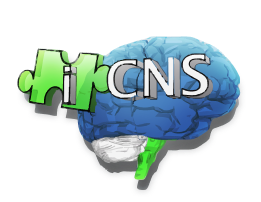Emotional regulation is crucial for mental health and well-being. For those experiencing mood disorders, navigating feelings can be particularly challenging. This blog post explores the link between neuroscience and emotional regulation, highlighting insights that can aid adults dealing with mood disorders. Understanding how our brains process emotions can provide transformative pathways to emotional stability.
The Importance of Emotional Regulation
Emotional regulation is the ability to manage how we respond to our feelings. This process can be tough for those with mood disorders, often resulting in overwhelming emotions that disrupt daily life.
For example, someone affected by depression may feel intense sadness over minor events, such as a missed deadline, which can lead to a serious decline in motivation. According to the National Institute of Mental Health, up to 7% of adults in the U.S. experience depression annually, emphasizing the need for effective emotional regulation.
On the flip side, individuals with anxiety might have heightened fears or worries about situations that others view as manageable. For instance, a person might feel an overwhelming sense of panic when faced with public speaking, regardless of their expertise. Effective emotional regulation allows individuals to build resilience and balance in facing life's challenges.
In therapy, integrating a strong understanding of the brain’s role in emotional regulation can equip professionals with tools that guide clients toward healthier emotional responses.
The Brain’s Role in Emotion
Various brain regions detect and regulate emotions, with the amygdala, prefrontal cortex, and hippocampus playing significant roles.
The Amygdala
The amygdala acts as the brain's emotional command center. It detects threats and triggers emotional reactions like fear or aggression. In people with mood disorders, the amygdala may show heightened activity. For instance, research indicates that individuals with depression may have a 30% increase in amygdala reactivity.
This overactivity can cause disproportionate feelings of anger, sadness, or anxiety. Techniques like cognitive restructuring can help train the brain to respond more appropriately to emotional cues, reducing overwhelming responses.
The Prefrontal Cortex
The prefrontal cortex (PFC) is critical for decision-making and self-control. It acts like a stabilizer, managing the emotional intensity the amygdala generates. Reduced activity in the PFC is often linked to impulsivity and emotional instability in those with mood disorders.
Research shows that enhanced PFC activity can lead to improved emotional regulation. Therapies that strengthen connections between the PFC and amygdala - like neurofeedback - are gaining attention. These techniques teach individuals to modify their brain activities for healthier emotional responses.
The Hippocampus
The hippocampus is essential for memory and learning, contributing to how we understand our emotions based on past experiences. Studies suggest that chronic stress can lead to a 10% decrease in hippocampal volume, making it difficult to process emotions effectively.
By integrating knowledge of these brain regions into therapy, professionals can address not only emotional symptoms but also the neurological roots that contribute to mood disorders.
Therapeutic Approaches that Utilize the Neuroscience of Emotional Regulation
Understanding the neuroscience of emotional regulation supports a range of therapeutic interventions. Below are effective strategies in therapy:

Cognitive Behavioral Therapy (CBT)
Cognitive Behavioral Therapy helps individuals identify and change negative thoughts that lead to emotional distress. For example, someone who assumes they will fail at a task may begin to feel anxious and avoid it altogether. By working with a therapist, individuals can challenge these thoughts and develop healthier responses, leading to improved emotional regulation.
Mindfulness and Acceptance-Based Therapies
Mindfulness focuses on being present without judgment. Acceptance-based therapies allow individuals to recognize and experience their emotions without rushing to change them. Research shows that mindfulness practices can reduce emotional reactivity by 60%, making them vital in therapy sessions addressing anger or anxiety.
Neurofeedback
Neurofeedback is a cutting-edge technique that provides real-time feedback about brain activity. This allows individuals to learn how to adjust their emotional responses. For instance, during a neurofeedback session, a client might see how specific thoughts affect their brain's emotional centers, guiding them toward healthier reactions. There are several practices now offering neurofeedback in San Antonio, including my own. I have more than 20 years of experience in this technique, in combination with psychotherapy.
Couples Therapy
Couples therapy can aid individuals with mood disorders by fostering mutual understanding and collaboration. In sessions, partners can discuss their emotional triggers and learn strategies to support each other through difficult times. This shared approach helps both partners develop better emotional responses, enhancing their overall relationship dynamics.
A Path to Emotional Balance
Grasping the neuroscience behind emotional regulation is vital for anyone seeking therapy for mood disorders. As we learn more about our brains, it is clear that emotions are deeply woven into our neural circuits.
Therapies aligned with brain function—like CBT, mindfulness, neurofeedback, and couples therapy—can empower individuals to regain control over their emotions. Improved emotional regulation not only enhances mental health but also increases overall quality of life.
Armed with this understanding and effective therapeutic methods, adults facing mood disorders can chart their path towards emotional balance and resilience.

D. Allen Novian
PhD, LMFT, LPC, BCN
Dr. Novian is a San Antonio Marriage and Family Therapist, Professional Counselor and Neurofeedback Clinician with more than 20 years experience working with couples and individuals aged 9-90. His philosophy is based on the foundation that integrating and regulating your mind-body and spirit in daily life will not only improve your own mental and physical functioning it will also help to grow and deepen your relationships.

Commenti